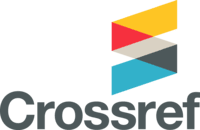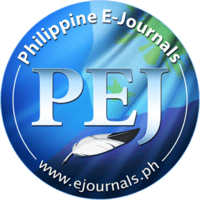Bridging Perceptions: Gender Equality in the Eyes of Faculty and Students at Initao College
DOI:
https://doi.org/10.64807/nnmpbf44Abstract
This study investigates the perceptions of gender equality in the classroom and academic environment at Initao College, focusing on the awareness of gender equality principles, the integration of gender equality concepts into teaching methods, and the influence of faculty members’ practices on students. A mixed-methods research design was employed, combining a survey and thematic analysis. The survey was administered to 27 faculty members and 305 students from various programs (BEED, BSHM, BSCRIM, and BSBA), and followed by an analysis of open-ended responses to gain deeper insights. Findings reveal that while both faculty and students are generally aware of gender equality principles, faculty members hold significantly more positive perceptions regarding the integration of these concepts into the curriculum and teaching methods compared to students, although perceptions were consistent across genders. Faculty members largely support gender equality through inclusive teaching practices, while students identified specific areas for improvement, including policies regarding dress codes and gender expression, and more consistent efforts to challenge gender stereotypes. The study highlights the need for continuous gender sensitivity training, policy revisions, and the promotion of inclusivity in institutional culture. Recommendations for enhancing gender equality include regular seminars, policy review, student involvement, and a consistent evaluation of gender equality practices within the college.
Keywords:
Gender Equality, Classroom Environment, Academic Environment, Mixed-Methods, Faculty, Students, Inclusivity, Gender Sensitivity, Institutional Policies, Initao CollegeReferences
Bem, S. L. (1981). Gender schema theory: A cognitive account of sex typing. Psychological Review, 88(4), 354-364. https://doi.org/10.1037/0033-295X.88.4.354
Chuang, S. (2019). Exploring women-only training program for gender equality and women’s continuous professional development in the workplace. Higher Education, Skills and Work-Based Learning. https://doi.org/10.1108/HESWBL-01-2018-0001.
Clavero, S., & Galligan, Y. (2021). Delivering gender justice in academia through gender equality plans? Normative and practical challenges. Gender, Work & Organization. https://doi.org/10.1111/GWAO.12658.
Condron, C., Power, M., Mathew, M., & Lucey, S. (2022). Gender Equality Training for Students in Higher Education: Protocol for a Scoping Review. JMIR Research Protocols, 12. https://doi.org/10.2196/44584.
Crenshaw, K. W. (1989). Demarginalizing the intersection of race and sex: A Black feminist critique of antidiscrimination doctrine, feminist theory, and antiracist politics. University of Chicago Legal Forum, 1989(1), 139-167. https://chicagounbound.uchicago.edu/uclf/vol1989/iss1/8
Curaming, E., & Curaming, R. (2020). Gender (In)equality in English Textbooks in the Philippines: A Critical Discourse Analysis. Sexuality & Culture, 24, 1167-1188. https://doi.org/10.1007/S12119-020-09750-4.
Eagly, A. H. (1987). Sex differences in social behavior: A social-role interpretation. Lawrence Erlbaum Associates. https://www.routledge.com/Sex-Differences-in-Social-Behavior-A-Social-Role-Interpretation/Eagly/p/book/9781138885781
Elson, D., & Seth, A. (Eds.). (2019). Gender equality and inclusive growth: Economic policies to achieve sustainable development. UN Women. https://www.unwomen.org/en/digital-library/publications/2019/01/gender-equality-and-inclusive-growth
Esteban-Guitart, M. (2019). Identity in education and education in identities: Connecting curriculum and school practice to students’ lives and identities. SpringerLink. https://link.springer.com/chapter/10.1007/978-3-030-28412-1_10
Fabes, R., Martin, C., & Hanish, L. (2019). Gender Integration and the Promotion of Inclusive Classroom Climates. Educational Psychologist, 54, 271 - 285. https://doi.org/10.1080/00461520.2019.1631826.
Gerlach, D. (2022). Inclusive language teaching. In H. Mohebbi & C. Coombe (Eds.), Research questions in language education and applied linguistics. Springer. https://link.springer.com/chapter/10.1007/978-3-030-79143-8_16
Gumba, B. (2013). Gender equality in a higher educational institution: A case in the Philippines. Journal of Education, Arts and Humanities, 1-104. https://doi.org/10.5539/res.v10n1p61
Hebl, M., & King, E. B. (2019). Gender equality in the workplace: An introduction. Archives of Scientific Psychology, 7(1), 1-31. https://doi.org/10.1037/arc0000071
Kollmayer, M., Schultes, M., Lüftenegger, M., Finsterwald, M., Spiel, C., & Schober, B. (2020). REFLECT – A Teacher Training Program to Promote Gender Equality in Schools. , 5. https://doi.org/10.3389/feduc.2020.00136.
Kollmayer, M., Schultes, M.-T., Lüftenegger, M., Finsterwald, M., Spiel, C., & Schober, B. (2020). REFLECT – A teacher training program to promote gender equality in schools. Frontiers in Education, 5, 136. https://doi.org/10.3389/feduc.2020.00136
Kuppuswami, D., & Ferreira, F. (2022). Gender Equality and Women’s Empowerment Capacity Building of Organisations and Individuals. Journal of Learning for Development. https://doi.org/10.56059/jl4d.v9i3.621.
Lei, H., Cui, Y., & Zhou, W. (2018). Relationships between student engagement and academic achievement: A meta-analysis. Social Behavior and Personality: An International Journal, 46(3), 517-5283. https://doi.org/10.2224/sbp.7054
Marcus, R., & Samuels, F. (2020). Gender-transformative programming: A background paper for UNICEF’s revised Gender Action Plan. UNICEF. https://www.unicef.org/media/117086/file/Gender-Transformative-Programming-in-UNICEF-Case-Studies-2022.pdf
Siebert, M. (2020). Gender discourse in the social studies curriculum: an international literature review. 15, 183-194. https://doi.org/10.1108/ssrp-01-2020-0002.
Simeon, C. P. B., & Aguja, H. J. (2023). Mandates and Wherewithals: The Research-Teaching Nexus In Gender Mainstreaming in The Msu-Iligan Institute of Technology, Philippines. Jurnal Studi Pemerintahan, 8(4), 536–555. https://doi.org/10.18196/jgp.2017.0057.536-555.
8, 536-555. https://doi.org/10.18196/jgp.2017.0057.536-555.
Sumadsad, C., & Tuazon, A. (2016). Gender and Development (GAD) Awareness in a Higher Education Institution. Public Choice: Analysis of Collective Decision-Making eJournal.
Tarrayo, V. (2021). Navigating the gender dimensions in English language teaching: perceptions of senior high school teachers in the Philippines. Pedagogy, Culture & Society, 31, 933 - 953. https://doi.org/10.1080/14681366.2021.1966080.
Tarrayo, V., & Potestades, R. (2023). Understanding Queer Filipino University Teachers' Queering Efforts in the English Classroom. TESOL Quarterly. https://doi.org/10.1002/tesq.3256.
Tarrayo, V., Potestades, R., & Ulla, M. (2021). Exploring the Gender Perspective in English Language Teaching (ELT): Voices from ELT Practitioners in Philippine Higher Education Institutions. Sexuality & Culture. https://doi.org/10.1007/s12119-021-09840-x.
UNESCO. (2023). Inclusion and gender equality: Brief on inclusion in education. UNESCO. https://unesdoc.unesco.org/ark:/48223/pf0000387889
Valencia, M. (2017). Gender Mainstreaming in a Teacher Education Institution in the Philippines. , 9. https://doi.org/10.2121/EDU-IJES.V9I2.801.G764.
Villegas, J. (2021). Gender Audit as Basis in Developing Modules for GAD Focal Persons in Mati, Davao Oriental, Philippines. Discourse and Communication for Sustainable Education, 14, 48 - 56. https://doi.org/10.21203/rs.3.rs-1184603/v1.
Vizcarra-Garcia, J. (2021). Teachers’ Perceptions of Gender Inclusive Language in the Classroom. International Journal of Linguistics, Literature and Translation. https://doi.org/10.32996/ijllt.2021.4.3.12.
Yarmolynska, I., Tytova, N., Tarasenko, K., Huriievska, V., Melnyk, O., & Poberezhets, H. (2021). Introducing the principles of gender equality in the educational process of training specialists for the security and defense sector. LAPLAGE EM REVISTA. https://doi.org/10.24115/S2446-622020217EXTRA-C1037P.485-494
Downloads
Published
Issue
Section
License
Copyright (c) 2025 Sydney Jay Villarin, Divina Gracia Divino, Lily France Echavez, Kemski P. Lumahang (Author)

This work is licensed under a Creative Commons Attribution 4.0 International License.
All articles published in QCU Journals are made available under the Creative Commons Attribution 4.0 International License (CC BY 4.0).
This license allows for:
- Sharing – copying and redistributing the material in any medium or format.
- Adapting – remixing, transforming, and building upon the material for any purpose, including commercial use.





